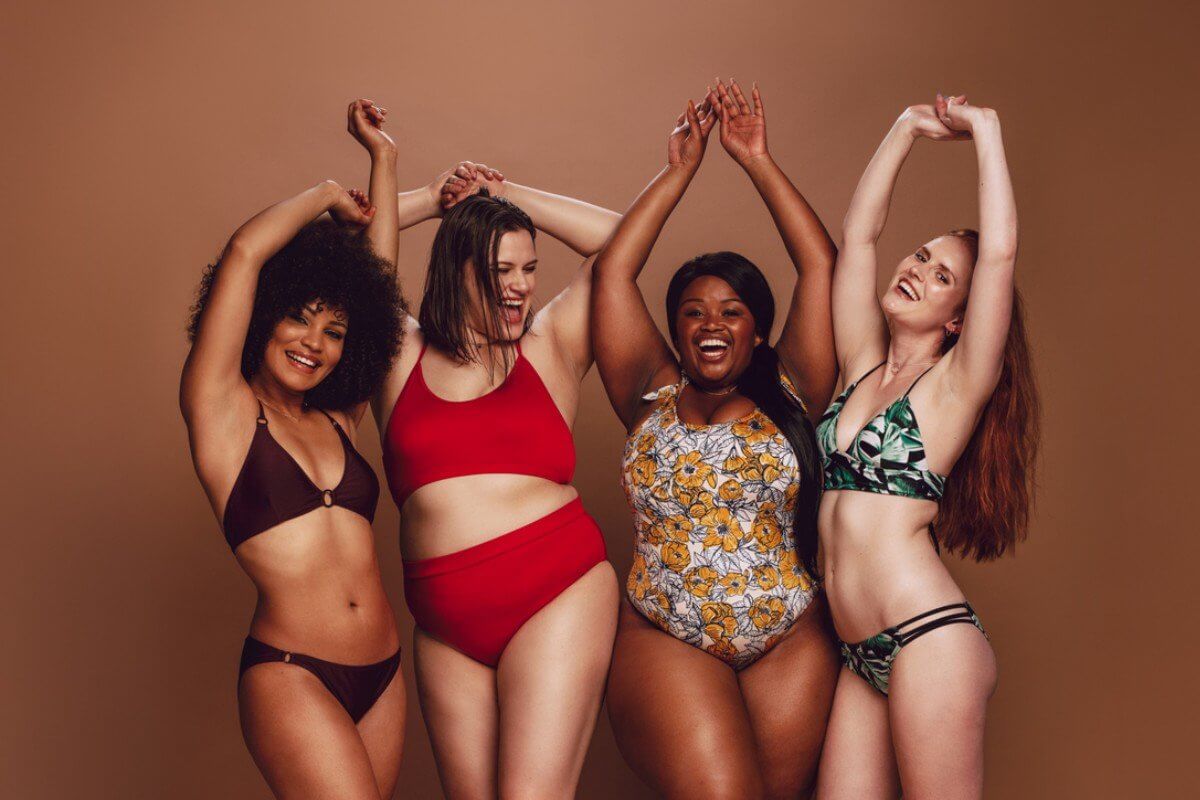Body positivity is a strong movement, shaping communities worldwide, with the purpose to help individuals, namely women, to feel content with their unique body types. This activity strives to promote the importance of acceptance, believing that people deserve to embrace their natural body image, regardless of how the mass population, alongside commercial industries, perceive ideal shape, size, and appearance. The intention behind the movement is to encourage everyone to appreciate their figure, in-spite of potential flaws, and ultimately boost one’s confidence.
Awareness is everything. This movement has been initiated to correct a somewhat destructive power imbalance, whereby unrealistic body standards have been etched into society, as a mirage that causes individuals to feel profoundly unattractive. One of the objectives for Body Positivity is to tackle the ways in which it takes a toll on one’s well-being. Maintaining a positive body perception plays a vital role in determining how people feel, not only about their physical image, but also their self-worth. This in turn helps to combat mental health issues, such as depression and eating-disorders, that can unfortunately stem from one’s negative perception of themselves.
Quite frankly, it is recognising that your worth versus your physical appearance are two differing units. Meaning that, regardless of what is happening inside or outside of your body, you are still beyond amazing and valuable!
The term ‘body positive’ and the connotation around it have received a huge amount of acknowledgment, especially in regards to social media. Many brands, celebrities, and individuals have been promoting this movement relentlessly. Terms that were once seen as offensive and demeaning, have been transformed into hashtag campaigns. People referred to in this insulting way are gaining control by taking these names and applying them in a positive light; totally inverting the situation using pure irony. Examples: #fatandbeautiful #skinnysquad #flabbyandfabulous.
Although this campaign was sparked primarily for women, men from all over the continent seem to be inspired by the success this has reaped for females. Men are now using platforms such as Instagram to ignite conversations, regarding the essence of body positivity and self-love for guys.
Credits photo: Cosmopolitan
Now let's be real, features like stretch marks and cellulite do not exactly discriminate when it comes to choosing which body to appear on: the majority of us regardless of shape or size tends to experience this ‘blemish’ at some point in life. Previously seen in society as a flaw, this movement has shifted the perception, as it is now embraced by many. For example, artist Sara Shakeel has used glitter effects to highlight the features mentioned and shown above, transforming a once deemed negative trait into an empowering piece of art.
Despite it all, body shaming feels like a never-ending issue, with someone often poking fun at another about their size or shape. So this is one of the most important reasons to initiate body positivity. Although it has improved over the years, there is still quite a long way to go. Fat shaming is something that stems from it, and continues to pop up from time to time, both consciously and subconsciously. This includes everything from demeaning comments on Instagram about someone’s bikini wear, to general remarks like “wow you look amazing now that you have lost a few pounds” (intended as a compliment). This often causes a judgement where it is assumed that one who does not meet society’s expectation of average size, is unattractive, which is completely far from the truth.
We should not forget those on the other side of the spectrum. People fail to realise that skinny shaming is also an issue, and it is quite underrated. Individuals often believe that being slim is associated with desirability, and yes perhaps in the modeling industry or fields alike this may be the illusion presented. However, in the real world this is far from the truth, because not every ‘skinny’ or ‘thin’ person is happy to be casually labelled as it, because this can cause a strong sense of self-consciousness towards individuals who are struggling with their weight. Quotes like “real women have curves” does not exactly exhibit body positivity for all, and will most likely lower self-esteem levels of those who carry the opposite look.
Ultimately, plus size women should be allowed to love their curves, and likewise, naturally slim females should also be allowed to love their bones. It is not about creating division or uplifting one category at the expense of another. It has to be all inclusive, because body positivity is exactly that, body positivity for all to love their physique regardless of shape, size, or appearance.
Written by Nicole Biredu








